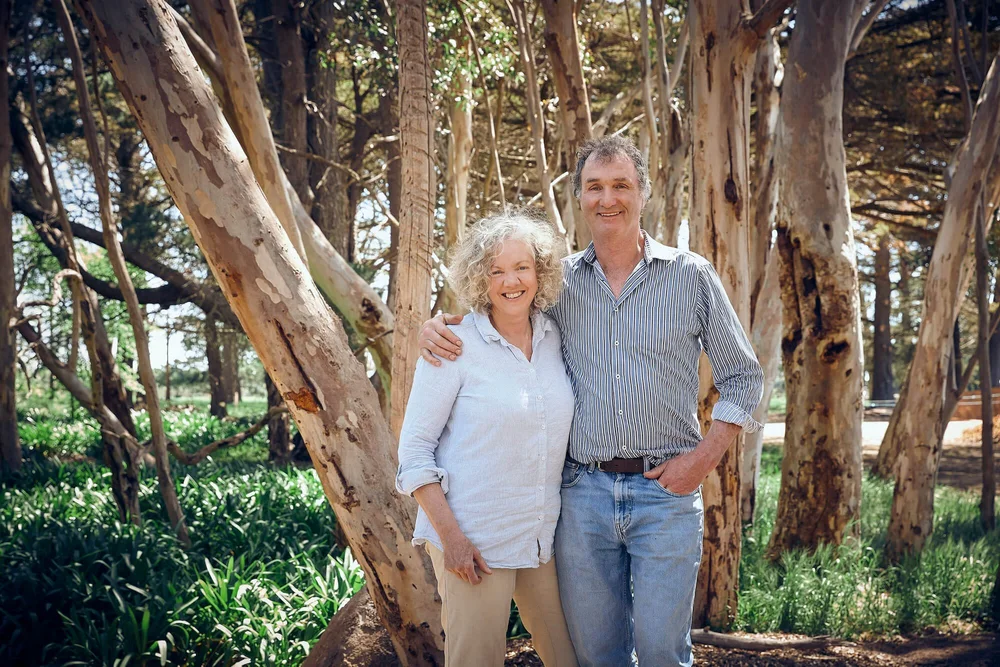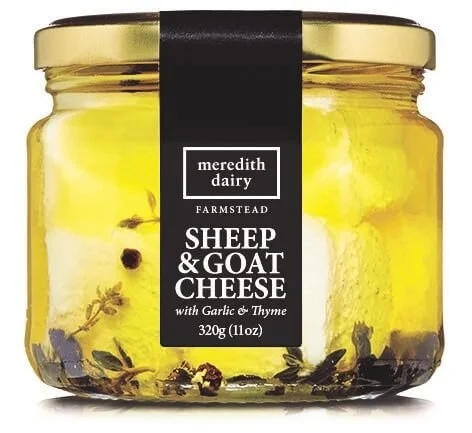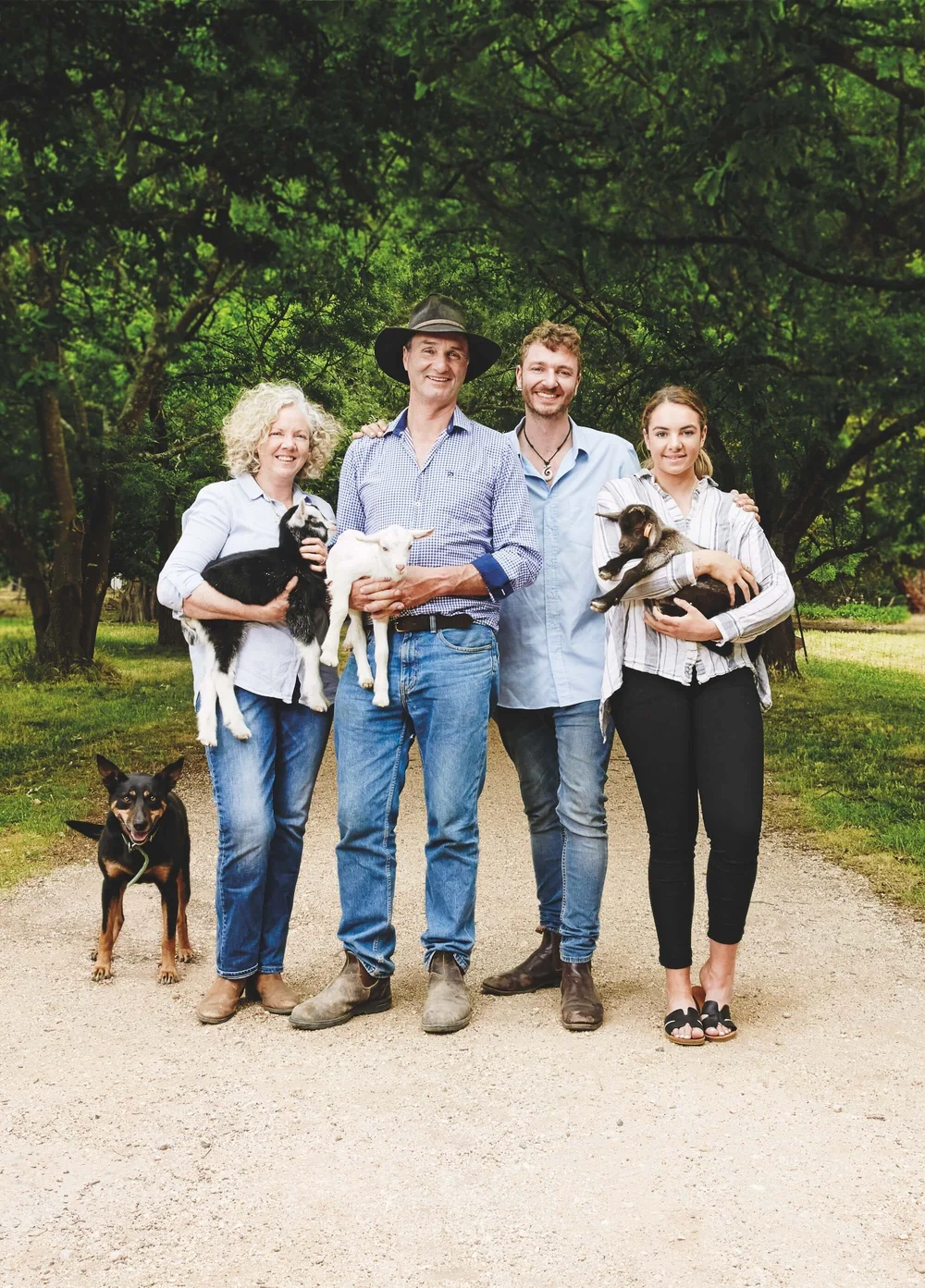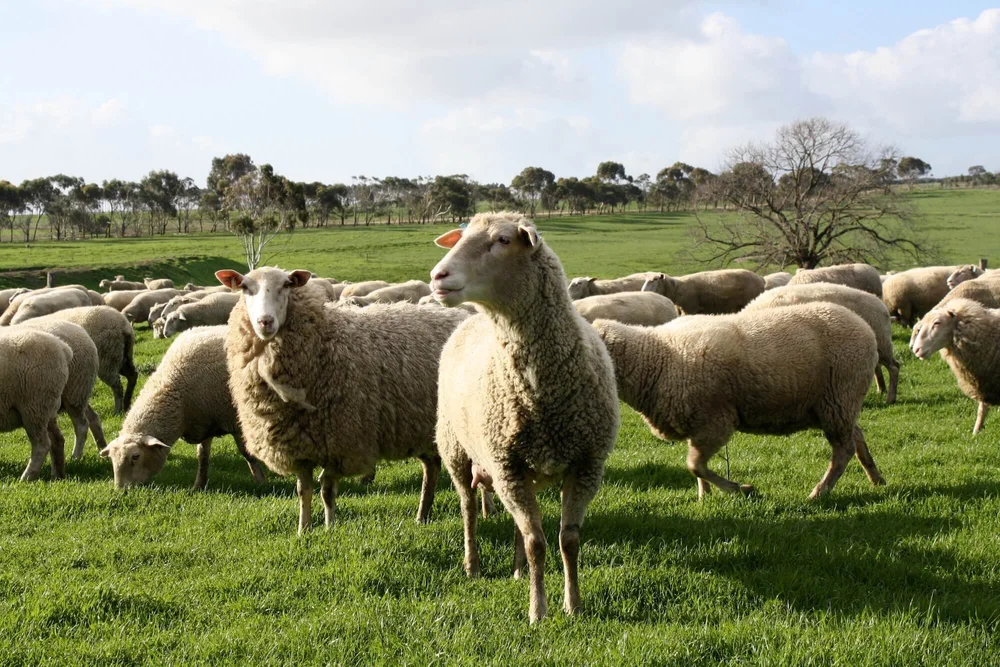Meredith Dairy, an Australian cheesemaker, is best known in the US for its jars of olive oil-soaked cubes of cheese, a mix of sheep’s and goat’s milk. They’ve won awards for the cheese and sustainable operations including the coveted President’s Medal in 2019 which is an award for food in general, not just cheese. We had a chance to talk with Angus Cameron, Marketing Manager of Meredith Dairy and son of its owners, about their sustainable farm and delicious cheese.

Origin Story
Sandy and Julie Cameron had not originally intended to make cheese. Both had grown up on farms and had wanted to return to farming. They opened the farm in 1991 with sheep but the price of wool dropped precipitously. It was a rough time to be farming, Angus Cameron said. But when a family friend, Richard Thomas, recommended they look into cheesemaking and said that sheep’s milk makes the best cheeses, the Camerons began milking sheep on August 21st, 1991. But when they first started, they only got 200 ml of milk from their first sheep and thought “we’re in trouble here.”
But Sandy Cameron was undaunted by the challenge, after all, he had a Veterinarian Ph.D. and had worked in genetics. So he decided to take his skills and apply them to the world of sheep. With selective breeding of the best milkers, the Camerons developed their own breed of sheep, now known as the Australian Dairy Sheep. After some time, they also decided to add goats to their farm.
They began making blue cheese, yogurt, and other products for other companies but it was not as successful as they hoped to be. But eventually they transitioned to the cheese they are known for today – the marinated cheeses.

Angus Cameron said that people call it feta, but that’s not quite the right description for their cheese. “It’s a totally different process. It’s got 10 times the amount of rennet which means that it’s a lot more dense cheese. It’s a little more crumbly and squeaky,” Cameron said, “What we make is chevre, so it’s the fresh goat’s cheese, that’s a lot more spreadable.” Also, they are salted differently, feta is brined while the Meredith Dairy’s cheese has the salt introduced to it when they press the cheese.
Oh and the name? He said that people think that Meredith is his mom’s name but the name comes from the 400-person town nearby. It’s the town listed on their mailing address.
Making Good Cheese
Since 2007, the brand has become better established in Australia. Now they have 4,500 acres of land with 12,000 milking goats and 3,500 milking sheep. Their cheeses are sold at major retailers, and restaurants started using them all of which has led to a fan base. But they wanted to do more. “My parents’ original goal was to be farmers. Using Meredith Dairy as a way to become farmers, they have had to widen their goals a little bit more,” Cameron said.

The quality of the milk is one part of the picture. Other cheese producers may outsource their milk and it can be a race to the bottom to get the cheapest milk, which does not produce as good cheese. But at Meredith Dairy, that’s not how they work. “All the milk that goes into our cheese comes from our own animals, which I believe is the reason why it doesn’t have that strong goaty flavor,” he said. They milk their animals every day and make their cheese with fresh milk. When the weather is good, the animals get to graze outside in the fields, another way to ensure happy animals and better quality milk.
They’ve also set up relationships with small dairies around the farm to help other people be able to have farming lifestyles. “They don’t get into farming because they want to make money. People will get into farming because they love the land, they love animals,” Cameron noted. They set up an equity relationship with the farming families. This allows them to continue the farming lifestyle with money to pay workers. Many reinvest back into the farm. Sandy Cameron and other vets help ensure the animals are happy and healthy.
The dairy also aspires to produce cheese more sustainably through significantly reducing waste and solar energy. They use manure from their animals to fertilize their land instead of relying on artificial manure fertilizers. “Then with a lot of the washed up water, we use that to irrigate trees, which then we actually feed into a wood fire boiler because a lot of the energy that we’re using cheesemaking is hot water. So we’re actually able to totally eliminate our need for natural gas,” Cameron explained. They do keep an emergency supply on hand just as backup but that’s not their main source of energy.
The farm also has 100 kilowatts of solar panels on the roofs of the factory. Cameron noted, “We can’t have any more because then we would need a permit to become a power station.”
Ultimately, Cameron said, “Now our vision is to produce food sustainably.”
The US Market
Meredith Dairy has been selling its cheese to the US since 2008. They started selling under the 34 Degrees brand but they transitioned to selling their own cheese under their own name. The cheese has made headway on the West Coast, especially in Napa Valley, Los Angeles, and San Francisco. They also have been selling through certain specific Costco stores as well. But the marinated goat and sheep cheese is found across the US. I became acquainted with their cheese through the Chicago cheese shop Beautiful Rind’s cheese club.

Now ten percent of their sales come from the US and the market is still growing. Cameron said they’ve grown 45 percent in just the past year. Scaling up will present more challenges since they are already the largest sheep dairy in Australia.
But they’re always thinking about how to do things better. For instance, they are working with universities on DNA testing to better understand why some animals are better milk producers compared to other animals.
While they’ve hit some snags along the way, Meredith Dairy continues to be committed to producing high-quality cheese with fresh milk. As Angus Cameron puts it, “We’re farming because we want good outcomes. We want to do it the right way and we want to have a sustainable operation.”
